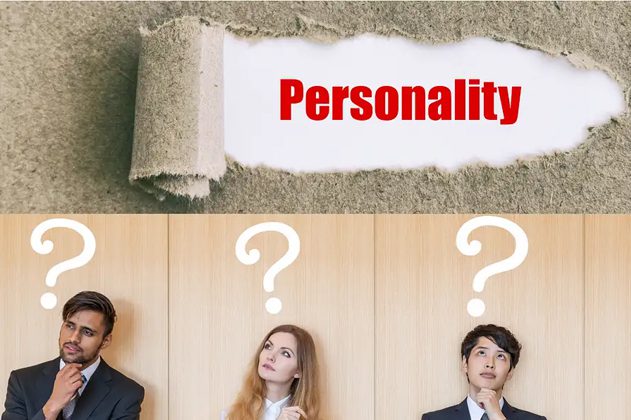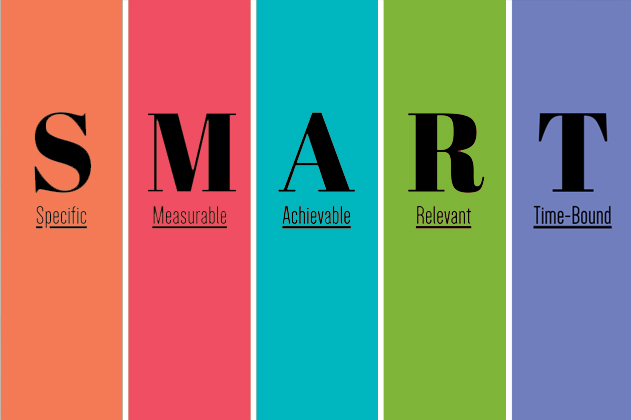
by Content Team | May 8, 2023 | Changing Personal Habits, Personal Development
In today’s world, where stress and anxiety seem to be an inevitable part of our lives, finding peace of mind has become a daunting task for most of us. However, the truth is that we can find inner peace by following a few simple steps.
- The first step towards finding peace is identifying the root cause of our stress and anxiety. It could be anything from work pressure to relationship issues. Once we identify the cause, we need to take steps to eliminate or reduce it. For example, if work pressure is causing stress, we can delegate responsibilities or take up stress-reducing activities like yoga or meditation.
- The second step is to take care of our physical health. A healthy body shows a healthy mind. Therefore, we must eat a balanced diet, exercise regularly, and get enough sleep to ensure our body functions optimally and our mind is at peace.
- The third step is to practice mindfulness. Mindfulness is the art of being present at the moment without bothering about the past or the future. We can practice mindfulness by taking a few deep breaths and focusing on our breath or by spending time in nature and observing our surroundings.
- The fourth step is to surround ourselves with positivity. We must avoid negative influences and surround ourselves with people who uplift us and make us feel good about ourselves. We can also practice positive self-talk and remind ourselves of our strengths and accomplishments.
- The final step is to cultivate gratitude. Gratitude is the method of being grateful for what we have in our lives. We need to focus on the positive aspects of our lives and be grateful for them. It helps maintain a positive outlook on life and find inner peace in difficult situations.
Conclusion
Finding inner peace is not an easy task, but it is achievable. By following these simple steps, we can get peace of mind and lead a harmonious life. Of course, it requires commitment and effort, but the rewards are worth it. So, let’s take the first step towards finding inner peace today.

by Content Team | May 4, 2023 | Self-Awareness
Self-awareness is an important term of personal growth and development. It enables individuals to objectively assess their thoughts, feelings, and behaviors, leading to better decision-making and interpersonal relationships. There are four types of self-awareness that people should understand to improve their self awareness: emotional self-awareness, introspective self-awareness, public self-awareness, and social self-awareness.
Different Types of Self Awareness
- Emotional self-awareness- is the capacity to recognize and understand one’s emotions, triggers, and how they affect behavior. This type of self-awareness involves identifying emotions as they arise and understanding their intensity and their impact. Emotional self-awareness is essential for effective communication and managing conflicts. Emotionally self-aware people can communicate their feelings effectively, show empathy to others, and regulate their emotions.
- Introspective self-awareness- is the capacity to reflect on one’s thoughts and beliefs, understand one’s values and motivations, and identify one’s strengths and weaknesses. This type of self-awareness involves introspection, journaling, and seeking feedback from others. Introspective self-awareness is vital for personal growth, setting goals, and making decisions that align with one’s values and aspirations.
- Public self-awareness- is an individual’s ability to understand how others perceive them. This type of self-awareness involves observing one’s behavior, communication style, and body language. Public self-awareness is crucial for building positive relationships with others, leadership, and conflict resolution.
- Social self-awareness- is the ability to understand social norms, adapt to diverse social situations, and recognize implicit biases. This self-awareness involves understanding cultural differences, recognizing power dynamics, and demonstrating cultural humility. Social self-awareness is vital for building meaningful relationships with people from different backgrounds and creating an inclusive environment.
5 Tips to Develop Self Awareness
Self-awareness is the basis of personal growth and self-improvement. It is impossible to develop self-development skills without being aware of one’s strengths, weaknesses, and tendencies. Unfortunately, lacking self awareness is a common problem for many people. If you want to build self-awareness, here are five tips to help you get started.
- Practice Mindfulness
Being mindful involves practicing being present and being aware of your feelings, thoughts, and experiences. Being more aware of your mental and emotional states is a potent tool for increasing self-awareness. In addition, regular mindfulness can teach you to identify your thought and behavior patterns, enabling you to make decisions more deliberately.
- Reflect on Your Experiences
Reflecting on your past experiences is another approach to grow in self-awareness. Consider your interactions with others, your accomplishments and disappointments, as well as your ideas and feelings. the question “What did I learn from that experience?” Your comprehension of yourself will help you identify your strengths and flaws as a result of this introspection.
- Seek Feedback
One of the most effective self development skills is to develop self-awareness to seek feedback from others. Ask your mentors, coworkers, friends, and family for their candid assessments of your strengths and faults. Be receptive to criticism offered with suggestions, and see it as a chance to improve.
- Journaling
An effective method for raising self-awareness is journaling. You can understand your thoughts and behavior patterns by writing your feelings and thoughts. Try to establish journaling as a regular practice and use it as a platform for self-reflection on your feelings and experiences.
- Practice Self-Reflection
Finally, develop the practise of frequently reflecting on your actions and choices. For instance, ponder questions like “Why did I act that way? ” or “What led me to that decision?” By reflecting on your actions, you can become more conscious of your tendencies and make better decisions in the future.
Final Words
Developing self-awareness is a critical skill for personal growth and self-improvement. By practicing Mindfulness, reflecting on your experiences, seeking feedback, journaling, and practicing self-reflection, you can increase your self-awareness and develop a deeper understanding of yourself.

by Content Team | May 4, 2023 | Changing Personal Habits, Personal Development
Personal growth and personality development are vital aspects of a fulfilling life. Many people desire to improve themselves but do not know where to start. In this article, we will share ten growth ideas for yourself that you can use for personal growth and development.
- Set Goals: Setting goals gives one direction and motivation. Establish objectives that are specific and in line with your values and vision. Then, track your progress as you divide your goals into more manageable, shorter steps.
- Learn Something New: Lifelong learning expands your knowledge and skills. Take courses, read books, attend seminars, or listen to podcasts. Develop a growth mindset that embraces change and challenges.
- Practice Self-Care: Self-care is crucial for maintaining one’s physical, mental, and emotional well. By eating well, exercising, and getting enough sleep, you can take good care of your body. Self-compassion and mindfulness exercises can also help you control stress and unpleasant feelings.
- Build Positive Relationships: Positive relationships provide support, encouragement, and feedback. Be with positive people who inspire and challenge you. Communicate effectively, listen actively, and show empathy and respect.
- Embrace Failure: Failure is a natural part of growth and learning. Hug failure as a learning opportunity, and use it to improve your personality development. Reevaluate your goals and strategies, and persevere with resilience and optimism.
- Cultivate Gratitude: Gratitude is a powerful positive emotion that enhances happiness and well-being. Focus on the good things, express appreciation to others, and keep a gratitude journal.
- Give Back: Helping others is a meaningful way to contribute to society and develop a sense of purpose. Volunteer, donate, or mentor someone. Use your talents and skills to make a positive impact.
- Take Risks: Taking calculated risks expands your comfort zone and potential. Challenge your fears and doubts, and pursue your dreams and passions. Be available to new opportunities and experiences.
- Reflect and Evaluate: Reflecting and evaluating your actions and decisions helps you learn and grow. Set aside time to reflect on your experiences, beliefs, and values. Then, evaluate your progress and adjust your strategies accordingly.
- Practice Self-Improvement Daily: Personal growth is a continuous journey, not a destination. Practice self-improvement daily by adopting good habits, eliminating bad habits, and seeking feedback. Maintain a growth mindset, and embrace challenges and opportunities.
Conclusion
These ten strategies can help you elevate your life and achieve personal growth and development. Pick the ones that resonate with you, and integrate them into your daily life. Personal growth is a lifelong journey, so be patient, persistent, and proactive in self-improvement.

by Content Team | May 2, 2023 | Personal Development, Self-Awareness
Personality is a complex and fascinating subject, and many theories and models attempt to explain the different personality types. However, understanding personality types can be helpful in many areas of life, such as career planning, personal development, and relationships. In this blog post, we will explore the different types of personality development and discuss their characteristics, strengths, and weaknesses. Whether you are a student, a professional, or simply interested in human behavior, this post will provide valuable insights into the world of personality. So, let’s understand the fascinating world of personality types.
Different Types of Personality Development
One can strive for different types of personality development based on their goals and aspirations. However, the most common types of personality development are:
- Self-Actualization: This type of personality development is focused on achieving one’s full potential and becoming the best version of oneself. It involves continuous self-improvement, high standards, and a growth mindset.
- Social: Social personality development is about building healthy relationships, empathy, and good communication skills. In addition, it involves developing emotional intelligence, active listening, and conflict-resolution skills.
- Intellectual: Intellectual personality development is focused on enhancing one’s knowledge and skills through learning. It involves setting educational goals, reading, attending seminars, and acquiring new skills.
- Emotional: Emotional personality development is about managing emotions effectively, developing self-awareness, and building resilience. It involves practicing mindfulness, meditation, and stress management techniques.
- Creative: Creative personality development is focused on exploring one’s creativity and using it to express oneself. It involves engaging in artistic pursuits such as writing, painting, music, and other forms of creative expression.
Final Words
Personality development is essential to personal growth and self development goals. Individuals can set goals and work towards becoming their best version by identifying the type of personality development they want to achieve. It is a continuous process that needs commitment, perseverance, and a positive mindset.

by Content Team | May 2, 2023 | Changing Personal Habits, Personal Development
In today’s constantly evolving work environment, prioritizing personal development is more important than ever. Investing in yourself enhances your skills and knowledge and helps you stay competitive and relevant. However, setting effective personal development goals can be a daunting task. In this blog post, we’ll explore the steps you can take to set achievable and meaningful personal development goals for work. From recognizing your strengths and weaknesses to creating a clear action plan, we’ll provide practical advice and insights you can practice immediately. So, let’s get started on your personal development journey!
Why are Personal Development Goals Important?
Personal development goals are important because they help you focus on your strengths and weaknesses, identify areas for improvement, and set a path for your professional growth. By setting personal development goals, you can become more self-aware, take control of your career, and become more effective at work. Personal growth goals also show your employer that you are committed to your job and willing to improve yourself.
Step-by-Step Guide to Personal Development Goals for the Workplace
- “Introduction to Personal Development Goals in the Workplace”
- Define personal development goals and their importance in career growth.
- Discuss how setting these goals can improve work performance and job satisfaction.
- “Identifying Areas for Improvement”
- Discuss the importance of self-reflection and assessment in setting personal development goals.
- Provide tips for identifying specific areas for improvement, such as skills, knowledge, or work habits.
- “Setting SMART Goals”
- Define SMART goals and how they can help in achieving personality development
- Provide examples of specific, measurable, achievable, relevant, and time-bound goals for the workplace.
- “Creating an Action Plan”
- Discuss the importance of creating an action plan to achieve personal development goals.
- Provide a step-by-step guide to creating an action plan, including setting deadlines and identifying resources.
- “Tracking Progress”
- Discuss the importance of tracking progress toward personal development goals.
- Provide tips for monitoring progress and making adjustments as needed.
- “Overcoming Obstacles”
- Discuss common obstacles to achieving personal development goals in the workplace.
- Provide strategies for overcoming these obstacles, such as time management and seeking support from colleagues or mentors.
- “Staying Motivated”
- Discuss the importance of staying motivated when working towards personal development goals.
- Provide tips for staying motivated, such as celebrating small successes and visualizing the end goal.
- “Collaborating with Others”
- Discuss how collaboration with colleagues or mentors can help achieve personal development goals.
- Provide tips for finding and working with a supportive network.
- “Making Personal Development a Habit”
- Discuss the importance of making personal development skills a habit in the workplace.
- Provide tips for incorporating personal development activities into daily work routines.
- “Celebrating Success”
- Discuss the importance of celebrating success when achieving personal development goals.
- Provide ideas for celebrating, such as sharing achievements with colleagues or treating oneself to a small reward.
In Conclusion
Setting personal development goals for work is crucial to achieving professional growth and success. By pursuing the steps outlined in this article, you can effectively identify your strengths, weaknesses, and areas for improvement and create a plan of action to achieve your goals. Set real and measurable goals, track your progress, and celebrate your successes. You can take your career to the next level with a clear vision and commitment to personal development. Best of luck in your journey towards achieving your professional goals.












